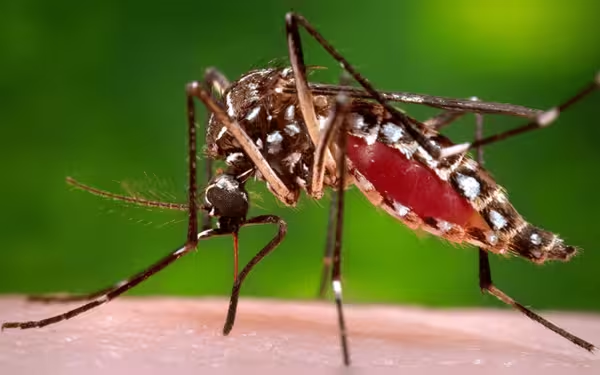Saturday, November 16, 2024 03:20 PM
Dengue Cases Surge in Lakki Marwat, Health Officials Alarmed
- Dengue cases in Lakki Marwat rise to six this month.
- Health officials conduct fumigation and screening in affected areas.
- Community cooperation essential to combat dengue transmission.
 Image Credits: dawn
Image Credits: dawnLakki Marwat faces a surge in dengue cases, prompting health officials to take immediate action and raise public awareness.
In recent weeks, the dengue virus has raised significant concerns across various regions of Pakistan, and Lakki Marwat is no exception. The district has witnessed a troubling increase in dengue cases, with health officials on high alert. Dengue fever, transmitted by the Aedes mosquito, can lead to severe health complications if not addressed promptly. As the monsoon season continues, the risk of mosquito breeding increases, making it crucial for communities to remain vigilant.
On Thursday, health authorities confirmed another case of dengue in Lakki Marwat, bringing the total number of positive cases in the area to six this month alone. The latest patient, identified as Naqibullah, a 45-year-old contractor, had recently returned to his hometown from Islamabad. His diagnosis was confirmed after a blood sample was tested at the District Headquarters Complex Tajazai. This case has prompted local health officials to take immediate action.
Jameel Khan, an entomologist at the district health office, reported that health staffers swiftly conducted fumigation in the Umar Titterkhel area, where Naqibullah resides. They also implemented anti-dengue spray inside his home to eliminate any potential mosquito breeding sites. Additionally, the health team screened other family members living in the same household and provided them with mosquito nets to ensure their protection against further infections.
The rise in dengue cases this month has alarmed health authorities, who are now intensifying their surveillance efforts. They are committed to implementing a comprehensive dengue control and prevention plan to combat the spread of the virus effectively. This includes raising public awareness about the importance of eliminating standing water, which serves as a breeding ground for mosquitoes.
As the situation unfolds, it is essential for residents to remain informed and proactive. Simple measures, such as using mosquito repellent, wearing long-sleeved clothing, and ensuring that homes are free of stagnant water, can significantly reduce the risk of dengue transmission. Community cooperation is vital in this fight against dengue, and everyone must play their part to protect themselves and their loved ones.
The recent spike in dengue cases in Lakki Marwat serves as a stark reminder of the ongoing health challenges posed by this virus. By staying informed and taking preventive measures, communities can work together to mitigate the impact of dengue and safeguard public health. It is crucial for everyone to remain vigilant and proactive in the face of this growing concern.













